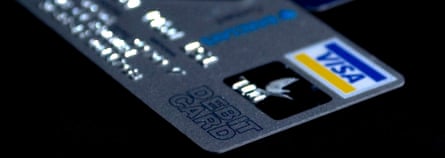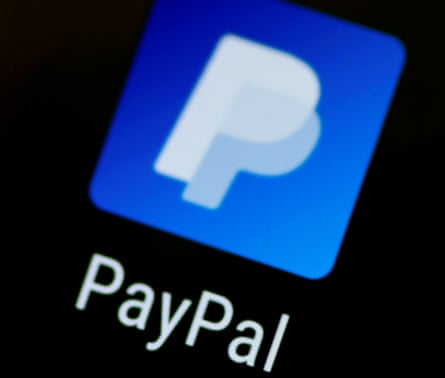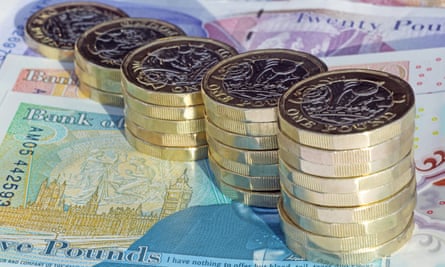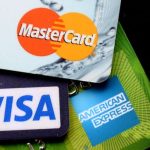Buying festive gifts used to be so simple but the march of technology, Covid and other factors have shaken things up and led to a dizzying array of payment options.
Buy something on the fashion website Boohoo, for example, and you can choose from seven ways to check out: credit and debit cards, PayPal, Amazon Pay and four different “buy now, pay later” companies.
But in some cases, payment methods are being taken away. Earlier this month Amazon announced it is banning people from using UK Visa credit cards from 19 January. And when it comes to physical shops, Covid transmission worries mean some are steering clear of notes and coins.
Here, we look at the pros and cons of different payment methods.
Credit cards
One big plus is that you usually get up to 56 days’ interest-free credit from the moment of purchase. However, some providers are offering new customers 0% interest on purchases for up to 23 months. Some credit card holders never pay any interest because they settle up in full each month.
Using a credit card for large purchases offers protections if things go wrong
Using a credit card for large purchases offers protections if things go wrong. Under section 75 of the Consumer Credit Act, if a retailer goes out of business or fails to deliver goods as promised and the items cost £100-£30,000, the credit card company is “jointly and severally liable”. So if you buy a big item and the retailer goes bust, the card company should cover the cost.
On top of that, some credit cards offer decent rewards such as cashback, air miles or money-off vouchers. American Express’s Platinum Cashback Everyday card is currently offering new customers 5% cashback on purchases for the first three months (up to £100).
But, as the government’s MoneyHelper website says, if you only make the minimum payments or run up a bill you can’t pay back, “credit cards can be costly and can lead to a spiral of debt”. Many charge more than 20% interest. You could also damage your credit score.
Debit cards
With these, the money comes directly out of your bank account. The protection you enjoy isn’t as good as that offered by credit cards, although some banks offer something called chargeback, which means they might be able to get some or all your money back if there’s a problem.
Some banks offer rewards linked to spending: for example, the new digital bank Chase is offering its current account holders 3% cashback on Amazon.co.uk spending until 31 December. It was already offering 1% cashback on all eligible debit card spending for 12 months.
 View image in fullscreenIf you use a debit card the money comes straight out of your bank account. Photograph: Chris Radburn/PA
View image in fullscreenIf you use a debit card the money comes straight out of your bank account. Photograph: Chris Radburn/PA
Store cards
These are a form of credit you can only use to pay for items at a particular retailer or group. There are still a few around offered by retailers such as Argos. The interest rates are often quite high: the Argos one has a representative APR of 34.9%, for example.
Buy now, pay later
These services let you delay payment for an item, with no interest or charges – unless you fail to pay back on time, at which point some firms impose late fees.
The three main BNPL firms are Klarna, Clearpay and Laybuy. Klarna lets shoppers “pay in 3”, where the cost is split into three equal interest-free payments, the first taken immediately and the next two 30 and 60 days later, or they can pay in 30 days’ time. With Clearpay you can pay in four fortnightly instalments, and with Laybuy it’s six weekly instalments. PayPal and the digital bank Monzo have also launched their own BNPL services.
Klarna doesn’t impose late fees but some others such as Clearpay do. There have been claims that those falling behind with their payments are experiencing more than just debt – some say they have seen their credit score drop, while others believe they have been rejected for loans after missing repayments.
PayPal
 View image in fullscreenLots of retailers allow people to pay online via PayPal.
View image in fullscreenLots of retailers allow people to pay online via PayPal.
Photograph: Thomas White/Reuters
Lots of big and small retailers, including John Lewis and Marks & Spencer, allow people to pay online via PayPal. It offers a “buyer protection” scheme covering all eligible purchases that entitles you to reimbursement of the full price plus shipping costs when you don’t receive your item or it isn’t what you ordered. However, even if your PayPal account is attached to your credit card you will lose out on the, arguably stronger, safeguards offered by section 75.
Some retailers have Zettle payment terminals, which allow people to pay in-store with PayPal via QR codes.
Apple Pay
You can use this to buy items in shops, on the web and in apps – you just add a credit, debit or prepaid card to the Wallet app on your iPhone. You can add your card(s) to other Apple devices (Apple Watch, Mac, iPad) you want to use with Apple Pay. Devotees like the fact that Face ID, Touch ID or your passcode are required for purchases, making it arguably more secure than using a physical card, and that your card number isn’t stored on your device or on Apple’s servers, or shared by Apple with retailers. It works in any physical outlet that takes contactless, and you can use it to pay online in Safari or within apps when you see it listed as an option.
Google Pay
This has a lot of similarities to Apple Pay. It lets you make purchases in stores and on websites and apps. You download the app and add a payment method such as a credit card. If a physical store accepts contactless, you can pay with your phone. In apps and on websites you can pay wherever you see the logo. When you pay in stores, Google Pay doesn’t share your card number.
Amazon Pay
If you have an Amazon account, you can use this service wherever you see the Amazon Pay button, which includes the online checkouts of many retailers. It uses the information and payment methods stored in your Amazon account. And you can use Alexa to pay by voice. It says eligible purchases of physical goods are protected by its “A-to-Z guarantee”.
But campaigners have long urged shoppers to boycott Amazon over its tax avoidance, among other things.
Interest-free credit
This lets you spread the cost over a set period (which might be as little as three months or as long as five years) via monthly payments. That’s all fine if you stay up to date with your repayments, but if you don’t, you could be hit with interest and additional fees, and your debt could mount up rapidly.
Cash
 View image in fullscreenThe coronavirus pandemic affected the use of cash. Photograph: Rosemary Calvert/Getty Images
View image in fullscreenThe coronavirus pandemic affected the use of cash. Photograph: Rosemary Calvert/Getty Images
Notes and coins are still hanging on in there despite the UK seemingly hurtling towards becoming a cashless society. Pluses include the fact that you can’t go into the red, you know exactly what you have spent, and there are no hidden fees or interest. However, some places have stopped taking cash or never did in the first place.



